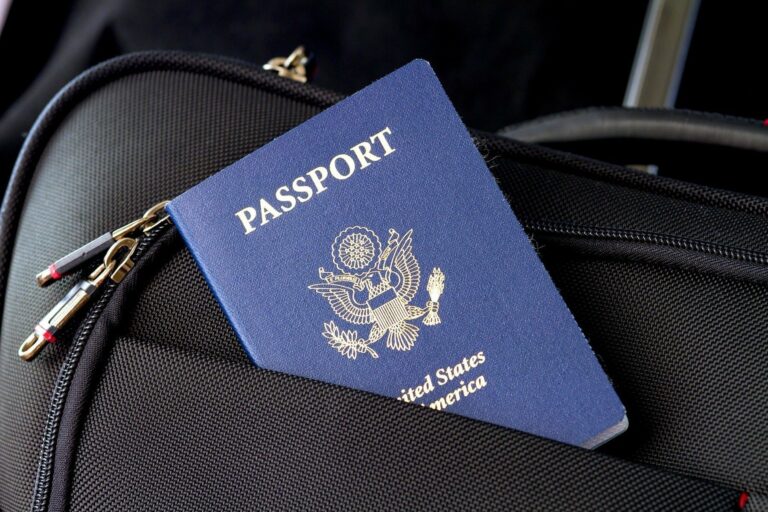If you want to live in Thailand long-term, your primary concern is going to be how to get a visa to make it possible. And unlike in the old days, making a life in Thailand isn’t as simple as grabbing a tourist visa from your local Royal Thai Embassy.
In this article I will provide you with a comprehensive overview of the best visa options for people wishing to move to Thailand for the long term. I will not be going through any tourist visa options, as I am focusing on true long-term visa options only.
But worry not, because Thailand these days has a wide range of viable options, and more people than ever are legally eligible for one of these long-term Thai visas.
With one type of SMART Visa in particular, certain entrepreneurs and startup founders can qualify, but in general the SMART Visa is a new type of visa specially designed to attract top-qualified talent in a small handful of technical industries in Thailand.
At launch, however, it became instantly clear that this is in no way any form of digital nomad visa for Thailand. And if you’re simply looking to come start a business in Thailand, unless it’s in an advanced science or tech field, you also won’t qualify for a SMART Visa. So what is it, and who can get one? We’ll answer all your questions. Let’s dive in!
Table of Contents
Educational Visa
Non Immigrant Visa Type ED

Technically, the Thai educational visa isn’t really an option for real long-term living in Thailand but can be for 1-3 years. This has also become a far less viable option in recent years, as the immigration bureau has cracked down on rampant abuse.
There are two routes one can take with the educational visa.
First, there are prominent universities in which one can study a vast range of subjects in pursuit of a degree or certification. However the selection of programs available in English tend to be quite limited.
The second option is small schools, which can provide you with an educational visa (ED Visa for short) only if they are certified as government higher educational institutions with approval from the Ministry of Education (MoE).
Typically, big schools are a safer option—for example, they will probably not go bankrupt while you are studying there—but usually, they are also more expensive.
The small schools are typically Thai language schools, though there are some that offer courses in other fields.
All have a minimum amount of hours you must study to qualify for the visa, but how strictly this is enforced can vary.
Until quite recently, there used to be many small schools offering educational visas for foreigners studying many things, such as Thai culture, cooking or even Thai boxing, but most of these schools have since lost their MoE certification and can no longer legally provide you with an educational visa.
If you decide to go with a small school, you should ask to see their MoE certification to make sure they can provide you with the visa and try to get the visa option agreed upon in writing.
The company they’re investing in or working for must also receive certification from a relevant government agency in Thailand to confirm that it belongs to one of these targeted industries.
Investor Visa
Non Immigrant Visa Type I or B

If your wealth or personal income leaves you with money to invest, it will open many options for you, as Thailand is very active in its endeavors to stimulate overseas investment.
There are two routes to move to Thailand via foreign direct investment. Firstly, there is the official way of investing money in government-approved investments in exchange for the investor visa (the Non-Immigrant Type I visa).
This typically requires a lot of capital—in the 5-10 million THB range—and the investment opportunities might not be to your liking.
Keep in mind that you cannot simply invest a few million baht into anything—say a condo for yourself to live in—and expect to receive an investor visa. That is not how it works.
The Lesser-Known Way
In this method, you would make an agreement with a Thai company of your liking in which you would invest in the company in exchange for them sponsoring you for a business visa.
Optimally, you would work as a business angel, providing this company money and expertise.
Almost any Thai company that has enough capital can sponsor your business visa.
If you also want a work permit, the enterprise must meet more strict requirements, but it can be done as well.
Be advised that typically Thai companies are not experts in immigration law. Therefore, you are responsible for ensuring the company you wish to invest in meets the requirements to be able to provide you with the visa.
Start a Business & Get a Business Visa
Non-Immigrant Visa Type B

Thailand is very open to foreigners moving there to start up businesses, which naturally inject money into the economy and provide jobs to the Thai people.
If you start a business in Thailand, you can get a business visa and live in the country as long as your company meets the requirements.
The requirements of the business visa are flexible, and there is a lot of room to negotiate.
In fact, it’s possible to get a one-year business visa solely on the premise of you wishing to come to Thailand to start a business.
That is, it’s possible—though not guaranteed—to get a business visa before you even establish a company or invest a single dollar. But on the other end of the scale, you may not be given the business visa until you have an established enterprise, have hired Thai staff, and invested enough capital to the company.
How quickly you get the business visa depends on your credibility.
If you are a person with high education and a proven track record of running businesses and investments in your home country, and you wish to establish a high-tech startup in Bangkok, you will probably get the visa easier.
It won’t be the same if you’re a person who has worked as a laborer all your life and wish to move to Thailand to open a bar in a tourist destination.
Long Term Resident (LTR) Visa
The Newest Option From Thailand’s Immigration Bureau
First announced in 2022, the Thailand LTR Visa is aimed at wealthy global citizens, highly skilled professionals in advanced STEM fields, wealthy foreign retirees, and remote “work from Thailand professionals” that are employed at major global corporations.
To dive into the exact requirements for a successful LTR Visa application, take a look at our in-depth overview.
Benefits for the LTR Visa holder are substantial, with up to a 10-year term, guaranteed visas for your legal spouse and children, a multiple re-entry permit and relaxed administrative requirements.
LTR Visa holders are also eligible for work permits without being employed by Thai companies.
SMART Visa
Similar to the LTR Visa, Thailand launched the SMART Visa in an effort to attract experts and highly skilled professionals in Thailand’s targeted industries within the Science, Tech, Engineering and Mathematics fields.
Like the Thailand LTR Visa we have a full explainer article covering the SMART Visa that is highly recommended if you want to understand the requirements.
If you’re an expert in tech or business and think the SMART Visa or LTR Visa may be a good fit for you, Iglu may be able to help you obtain yours. Reach out to us to find out what we look for and how we can streamline the process for eligible professionals.
Thai Work Permits

When it comes to living in Thailand, one needs to understand the concept of the work permit. Simply put: unless you are a Thai citizen, if you wish to work in Thailand legally, you must have one.
The (now digital) work permit is a document that your employer must provide you with before you start any type of work. It pairs with an eligible visa, and you need to qualify for both. Work permits are not only critical for working, they also greatly relax the process for things like opening a Thai bank account.
If you are doing anything one could consider working, such as volunteering, remote work for local or international clients, freelancing and so on, you are required by law (Alien Working Act of Thailand) to have a work permit.
What actually constitutes work can sometimes be difficult to define as one can own a business without a work permit, or live off the interest of investments.
Lastly, unlike the work visas or green-card systems in some other countries, in Thailand, a work permit is specific to an employer and a workplace.
That means that even if you have a work permit to work as a teacher at a school teaching English, if you’d also want to work as a bartender in a restaurant, you would need another work permit for that job. Furthermore if you were to leave that school and wanted to find a job as an English teacher elsewhere, your new school would need to provide you with a new permit.
If you wish to have a business in Thailand which would include you doing anything that one could consider working, by law you must have a work permit. To be able to have a work permit, whether that being for your own company or for an employer, the company must meet specific requirements.
Work Permit Requirements for Issuing Companies
The company must be a company registered in Thailand and it must be conducting real business.
Typically, a business must have four full-time Thai employees paid at least the minimum wage for every one work permit the company can sponsor.
Some capital must also be invested in the company.
Simply establishing an empty shell company and attempting to get a business visa and/or work permit is not going to work.
Lastly, when discussing the possibility of starting a business in Thailand, one needs to take into account the Business Act, which requires all Thai Limited Companies to have a Thai majority ownership—unless you’re an American citizen.
In other words, if you establish a company in Thailand and wish to use that business to receive a business visa and/or a work permit you must typically have at least 51% of the company owned by Thai citizens.
That said, you can have 100% control of your company even with the 51% Thai ownership by issuing shares with limited (or no) voting power to everyone other than yourself.
There are other exceptions to the 51% Thai ownership requirement—the most well-known being a BOI special permit.
The Thailand Board of Investment is an agency that extends certain exclusive rights to companies and individuals who wish to invest in Thailand.
Receiving and maintaining the BOI certification requires a certain level of investment to the company and typically also a certain level of turnover or profit.
Find a Job & Get a Business Visa
Non-Immigrant Visa Type B

Company Jobs
Besides starting your own business or investing in one, another way to receive a business visa is to get a job. This is not a trivial thing.
Because of the way the work permit and immigration laws are set, unless you have unique or advanced skills that a company is unable to find in a Thai national, your odds of securing a (legal) job in Thailand are low.
Unless your skill level is very high, no Thai company is likely to consider hiring you before you are actually inside the country.
Furthermore, Thailand already has thousands upon thousands of expats living in the country, desperate to take any job they can find, so competition for an extremely limited number of positions is fierce.
Teaching Jobs
The main exception is becoming an English teacher—almost anyone can find a job as an English teacher if they have the TEFL/TESL diploma (which you can obtain in Thailand).
The pay for English teachers is not very good and the hours can be long.
Also, the authorities have been starting to tighten the criteria for English teachers, often requiring them to have teaching experience from their home country and/or a university degree in teaching.
Another more available job option is diving instruction, which naturally requires a robust set of skills and certification, and is only available in parts of the country with diving businesses.
Volunteering
Another viable option is to find a job as a volunteer in a genuine volunteer organization that is willing to sponsor you for a work permit.
Such positions are quite rare, and as with paying jobs, very highly prized by all the foreigners already in the country.
If you are open to living in a smaller village in a rural area, your options increase significantly.
Especially if you are flexible when it comes to your living situation and aren’t relying on personal income from work to survive, finding a volunteer job might be more achievable than finding a real job, especially if you can’t teach English.
Non-Immigrant Visa Type B
If you are working in tech and are looking for employment opportunities, there are plenty of software and development companies with open positions available.
Iglu is one of them. As one of the leading IT and Business Process Outsourcing companies in the region, we’re always looking for qualified talent to join our team. If you have experience working in technology or business and are interested in living in Thailand long-term, get in touch with us.
Thai Elite Card
Non-Immigrant Visa Type O

A lesser-known option for a long-term visa is to buy the Thai Elite Card.
It is reasonably expensive (hundreds of thousands of THB) but it does grant you 5 or 10 years in Thailand. This option is all about convenience. If you have the money, and living happily in Thailand for you has no reliance on working there, this may be worth considering.
This option is ineligible for a work permit.
Marriage Visa
Non-Immigrant Visa Type O
If you legally marry a Thai national, you can receive the so-called Thai marriage visa.
It typically requires you to have money in a Thai bank account to prove you can support yourself and your new family.
You may be able to get the first year visa without the proof of income, but after that you will need to prove each year that you have the money to support your family and live in Thailand.
If you do happen to find a job, it is possible to get a work permit with this visa type.
Retirement Visa
Non-Immigrant Visa Type O/OA

The retirement visa is only available to people over 50 years old, and you must have money in your Thai bank account to prove you can support yourself in Thailand without working, or you must have a pension coming in from abroad.
A retirement visa cannot (typically) be combined with a work permit, so you cannot legally work while on a retirement visa, although there are scenarios in which it is possible.
These are, in a very simplified nutshell, all your legal options for staying long-term in Thailand. For more details please refer to our knowledge base, where we frequently post informative explainers on all aspects of life and work in Thailand.
This article does not constitute legal advice. Please consult with a certified legal advisor before making any investment or visa decisions.





